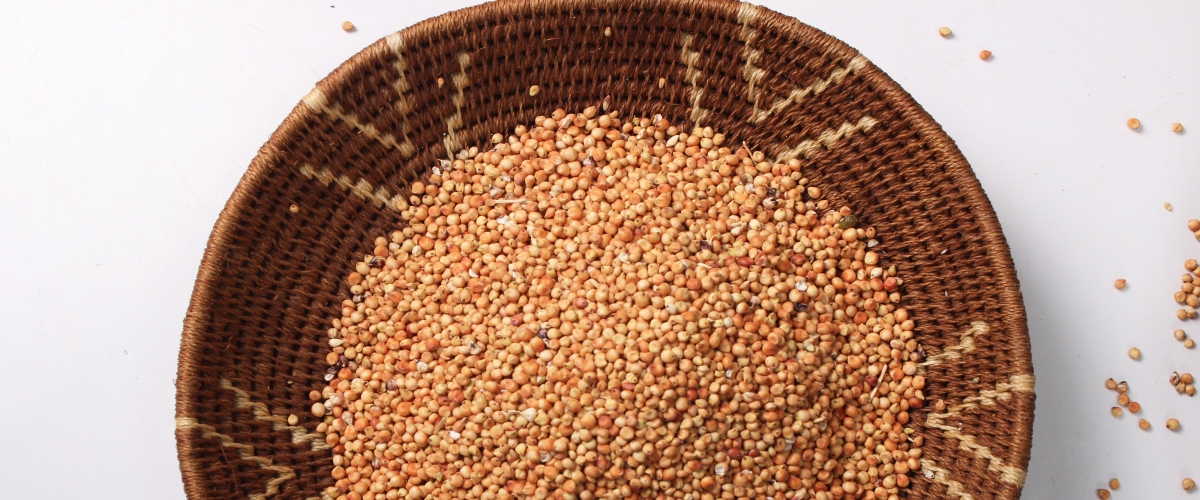
The Forum for Agricultural Research in Africa (FARA), in collaboration with the African Forum for Agricultural Advisory Services (AFAAS), Association for Strengthening Agricultural Research in East and Central Africa (ASARECA), Centre for Coordination of Agricultural Research and Development for Southern Africa (CCARDESA) and Central African Council for Agricultural Research and Development (CORAF) jointly organized a webinar on forgotten foods alongside the Global forum for agricultural research and innovation.
The objective of the Webinar was to develop a comprehensive stakeholder owned Africa manifesto on forgotten foods and facilitate the effective engagement of stakeholders in Africa's food systems to actively contribute to crafting the manifesto on forgotten foods, among others.
Since time immemorial, local communities consumed forgotten foods. The term “forgotten foods” refers to crop and livestock commodities that have been neglected or underutilized. Their underutilization stems from the fact that they are overshadowed by mass produced and processed foods commonly known as the 'BIG FOUR', namely wheat, maize, rice and soybean which account for about two-thirds of the world's food supply. The advent of these four crops led to the extinction of the forgotten foods, also known as the orphaned foods.
Africa has an immense diversity of traditional food crops distributed discretely across the farming landscapes. However, because of lack of government financial support or inadequate advanced research of certain crops, they have remained in the low yielding bracket hence getting neglected or becoming forgotten. In addition, they have not benefitted from modern scientific and technological advancements but instead relegated to the position of future crops.
Mr Matthew Montavon, the Interim Executive Secretary of the Global Forum for Agricultural Research (GFAR) gave the keynote address. He urged Africa to take the future into its hands and go back to the forgotten foods. These are disregarded mainly in research despite them being climate adaptive as well as high in nutritional value. He further added that forgotten foods’ adaptation characteristics, especially drought tolerance varieties, have capacity to thrive in marginal soils and adverse climatic conditions, which make them a vital asset for food security considering the impending vagaries of climate change.
Mr Montavon intimated that the GFAR-led global effort on forgotten foods is initially aimed at developing a manifesto on these foods and drawing on it to create a plan of action to advance them. He also alluded that GFAR is pursuing a bottom-up approach wherein the global manifesto on forgotten foods will be assembled from continental manifestos that will be outcomes of regional consultative processes. Lastly, he mentioned that GFAR is joining hands with FARA to co-convene a continental consultation process that will prepare Africa's manifesto on forgotten foods. FARA will thereafter, facilitate the creation and operationalization of the Africa Community of Practice on forgotten foods that will represent the continent in crafting the global manifesto on forgotten foods and preparing a plan of action.
The great work that ICRISAT has done on the exploration of forgotten commodities has gained prominence, particularly on Sorghum and Millet under the "Smart Food" program, which explores varietal development and agronomic practices as processing to generate new products. Dr Jacqueline Hughes, the Director-General of ICRISAT, attended the Webinar to share the organization's experiences. She alluded to the fact that forgotten foods are not forgotten, but they do not receive the attention that they need yet given their resilience to climate change, they are a good solution for Africa. She also mentioned the need for a policy on food processing of forgotten foods. She also reminded the participants of the upcoming 2021 United Nations Food Systems Summit (UNFSS), which calls for consideration of other issues beyond classical ambits of food security, i.e., the availability, affordability, and accessibility of food. The food systems thinking takes a deeper perspective at the complete chain of issues and factors from production through processing, marketing, distribution, quality control and safety, consumption patterns, food waste management, recycling of nutrients and other elements of environmental sustainability.
Dr Hughes also highlighted the need to work closely with the Media to creating awareness and communicate the economic, nutritional, environmental and cultural values of the forgotten foods using various social media platforms. She reiterated the need to incentivize farmers to invest in forgotten crops so that they are fully embraced. The exploitation of forgotten foods' intracontinental trade was another aspect that Dr Hughes encouraged participants to explore.
Other presenters at the Webinar were the FARA Board Chair, FARA Executive Director and other technical leads on forgotten foods. The key message from all the presenters was a resounding reminder to Africa to go back to the forgotten foods.
CCARDESA's Executive Director and Head of Mission, Dr Cliff Sibusiso Dlamini gave the closing remarks. He urged participants to take forgotten foods as potent alternatives during food shortages, serving as Africa's safety nets. Dr Dlamini also suggested proper documentation of the potential of Africa's native seeds and grains as the first effort towards the re-integration of forgotten foods into Africa's farming practices and food systems. He also reminded the participants of the role that forgotten foods play in the ecosystem, such as increasing soil fertility, erosion control hence it is imperative that they are integrated into the plan of action. Dr Dlamini also urged the participants to create an enabling environment to develop these foods through research, including empowering farmers in production, supporting the private sector in processing, and research efforts that should target value addition such as processing, packaging and marketing. These, he added, will increase revenue earned from the forgotten foods.
On behalf of CCARDESA, Dr Dlamini reaffirmed his commitment to working with SADC Member States/partners and other continental bodies to push the forgotten foods agenda through engagement with policy makers and technocrats to see it yield positive results.
By the end of the Webinar, it became clear that the potential of forgotten foods was unmeasurable and that there is need for collective action at national, regional and global levels






